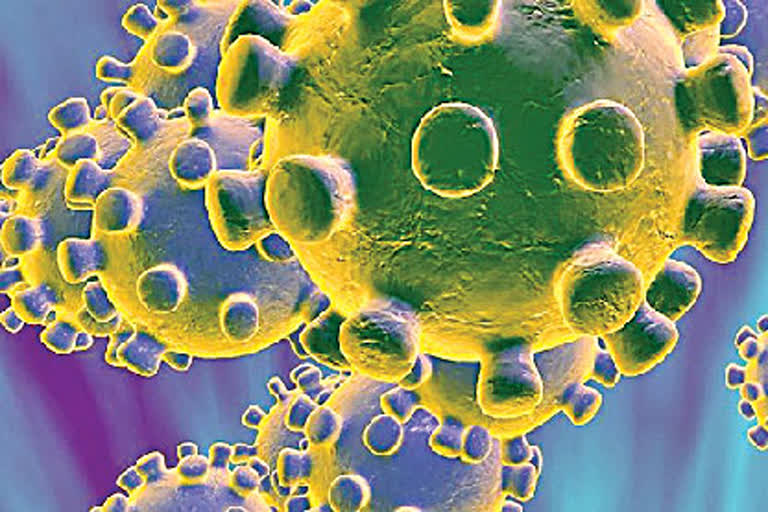Hyderabad: We have been living for more than a year amid a raging pandemic. We do not know when the virus would attack us. In the event of a Covid-19 symptom, anxiety and panic would be our initial reactions. What to do? Whom to contact? Should I get tested? What if the report gets delayed? Is it better to get a CT scan first? Should I consult a doctor? How long do I isolate? Is it a mild infection or a serious one? Is a hospital admission necessary? What other tests are needed? What to eat? All these are pertinent questions. Here is an article that answers all your queries!
If someone in the family contracts the virus, there will be confusion and alarm about whom to contact, and what medications to take. Here is the detailed information provided by Dr. Guntupalli Srinivas, Assistant Professor, Department of Medicine, at ASRAM medical college, Eluru.
Also Read: PM Modi reviews preparations to deal with Cyclone Yaas
Day to day symptoms and precautions:
Day 1
The virus quickly gets transmitted from one person to another in the family. So, if you have symptoms like fever, cold, sore throat, fatigue, or body pains; you must immediately isolate yourself! Flu and fever can be treated with common medicines like Cetirizine and Paracetamol. If possible, consult a family doctor or any other physician on the first day itself. You can inhale steam in case of a blocked or stuffy nose.
Day 2
Medication should be used as per the doctor’s prescription all the while remaining isolated. New symptoms should be brought to the doctor’s attention. Steam inhalation must be continued.
Day 3
If the symptoms persist, it is better to take an RT-PCR test on the third day. Medications must be continued.
Day 4
Even if you test negative in RT-PCR, medication must be continued. If tested positive, immediately inform your doctor. Start using necessary antiviral drugs to prevent the virus from replicating. Pulse oximeter must be kept handy at all times. Oxygen saturation must be checked once while sitting, and once after taking a brisk walk for 6 minutes in the room. Follow this process 4 times a day. If the oxygen level continues to drop below 95, see a doctor immediately!
Day 5
If the fever does not come down, gets severe, or if symptoms like cough and fatigue begin; consult a doctor immediately and get blood tests (Complete Blood Count, Kidney Function Test, Liver Function Test, Serum Ferritin, C - Reactive Protein, D-Dimer, and LDH) and CT scan as needed. If the symptoms persist beyond 5 days, the elderly and diabetics are advised to get admitted to a hospital.
Day 6
If a chest CT reveals lung abnormalities, you can decide whether to continue isolating at home or join a hospital, depending on what the doctor suggests.
Day 7
If you get admitted, you would anyway be under a doctor’s supervision. If you continue isolating yourself at home, it is better to keep the doctor informed about your symptoms.
Day 8 to 10
If symptoms like fever, nausea, and cough persist or get severe; seek hospital admission as per the doctor’s advice. At this stage, the doctors will consider antiviral drugs such as Remdesivir, and anticoagulants. Few more tests will be done to identify any other ailments. Oxygen support will be provided if the saturation drops below 93.
Day 11 to 14
Antiviral, immunosuppressant, and anticoagulant drugs will be used depending on the requirement. Oxygen support will be continued. If symptoms completely disappear, and oxygen levels remain at 95 for 3 days, the patient will be discharged.
Also Read: Bodies wash ashore along Maharashtra, Gujarat coasts
Be cautious about steroids:
Few people start using steroids as soon as the symptoms appear. Never do that! Only in the case of low oxygen saturation, steroids should be administered, that too on the doctor’s advice.
When to use antiviral drugs?
Antiviral medications control virus replication. At present, doctors are suggesting Favipiravir tablets and Remdesivir injections depending on the patient’s condition.
Precautions for home isolation:
- If a Covid-19 patient’s oxygen level dips below 94, or if their respiration rate is more than 24 breaths per minute, it is cause for alarm. In one or both of the cases, hospital admission is needed.
- A cloth mask cannot prevent virus transmission. When isolating at home, patients must use N-95 mask to avoid transmitting the infection to family members. If that is not possible, you can use a surgical mask on top of a cloth mask (double masking). Patient’s assistants must wear N-95 mask and face shield.
- If there is no facility for a separate bathroom, patients must clean the bathroom with bleaching powder or toilet cleaner after every use. Tap handles, and doorknobs must be sanitized. It is important to wear gloves, and frequently sanitize hands.
Nutrition advice:
- There are no specific dietary regulations for Covid-19 patients.
- Ensure that you are hydrated at all times. Take a lot of fluids.
- Seasonal fruits, protein-rich and fibrous foods must be included in your diet.
- New foods should be avoided during this time. It may cause an upset stomach or other discomforts.
What if symptoms go away after Day 5 of home isolation?
Persons with no co-morbidities or chronic illnesses may need to continue medication as prescribed by the doctor. People over 65, with obesity, diabetes, low immunity must be careful even if the symptoms go away. Oxygen saturation must be monitored 4 times a day. If fever returns after Day 7, or symptoms like nausea, fatigue, shortness of breath begin; get a chest CT scan.
But if symptoms have reduced after Day 5, home isolating patients can continue isolating for additional 10 days with necessary precautions. It is better to continue wearing a mask for a few days post isolation. It is highly advised to stay at home for 14 days post-recovery.



